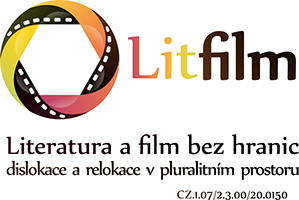

A permanent or temporary stay of the authors and artists at a place other than the place of their birth, growing up or living outside their cultural and linguistic environments, may bring many problems and/or be beneficial to them. They get to know other cultures but also perceive their own referential culture in a new light. This process, connected with a redefinition of one’s own identity or identities and with a reconfiguration of mind, manners and behavior, depends, besides other things, on whether the authors and artists were free or forced to leave their cultural environments.
We are concerned not only about the authors and artists who live and work in another country, or another continent, often outside their native language environment, but also about those who moved to another region (for example, in the U.S.A., Southerners outside the South) or to another community (movement from the city to the country or vice versa).
Keynote speakers:
Werner Sollors (Henry B. and Anne M. Cabot Professor of English Literature and Professor of African and African American Studies, Harvard University, USA)
M. Thomas Inge (Robert Emory Blackwell professor of Humanities, Randolph-Macon College in Ashland, Virginia; Palacký University, Olomouc)
Jiří Stránský (Czech author, scriptwriter, playwright, poet and translator)
Presentations abstracts (.pdf)
We are interested in the following questions:
• How do the writers or artists respond to the new environment in their works?
• How is the difference between voluntary and enforced departure reflected in their works (emigration versus exile)?
• To what extent are cultural stereotypes of the referential culture reaffirmed or reassessed?
• To what degree are the writers and artists able to reflect the differences or otherness of their new place, why do they tend to seek similarities and analogies with the place of their origin? How do they evaluate those similarities or differences?
• Why do the writers decide to write in a language other than their native tongue and how is it reflected in the structure of their works?
• When does an author or artist become cosmopolitan? What does it mean?
• In the case of dislocation or relocation, is a multi-ethnic origin an advantage or disadvantage? How does the solution of this problem change over the historical perspective?
The conference welcomes papers from the field of literature, film, theater, television, fine arts and history.
The conference will be bilingual, with at least two parallel sections, one in English, one in Czech. All the papers, which will pass through a peer-review process, will be published by the end of 2014: a) papers in English in a conference volume of papers, or in a special issue of a scholarly peer-reviewed journal; b) papers in Czech in a separate volume of papers.
There is no registration fee. The participants’ conference lunches and dinners are free.
The photo gallery from the conference can be accessed here (hosted on Google).
Papers submission deadline
Please submit your papers for publication in the conference proceedings by August 15th, 2014 to the conference email address: aviewfromelsewhere@gmail.com
The style sheet for the conference papers can be downloaded here (.doc). It is to be strictly adhered to.



